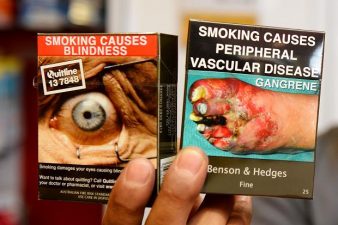In earlier posts we’ve talked about what to feed your baby—but what about your infant?
Breastfeeding is the number one choice for at least the first six months, and is recommended by many doctors for the first year. But this is not always an option for mothers, and that’s when baby bottles come into play.
The bad news is that baby bottles, nipples and accessories may contain toxic chemicals such as bisphenol-A and phthalates that can leach into your baby’s milk.
So what to do?
First look for bottles that are not made from polycarbonates (#7 for recycling) and are BPA free. Bottles may also be made from PVC, one of the worst plastics around for environmental damage and health issues.
Ditch the rubber pacifiers and nipples—they can leak a chemical called nitrosamine, and also breakdown a lot faster. Choose silicon, it is a lot stronger and heat resistant. Always check for cracks and tears; bacteria love them!
Do not heat your milk in the bottles; dangerous chemicals are more likely to leach in. Now with the summer coming: If you forget your baby’s bottle in the car, let it cool down and change the milk. This applies to all drinks in plastic bottles too. Additionally, don’t freeze bottles of water for drinking.
Medela & Evenflo make bottles from safer plastics, if you can’t find these try contacting manufacturers to check what kind of plastic they use.





While it is true that Canada appears to be planning to ban Bisphenol A in several products, be aware that the “7” designation on a recycling symbol does not necessarily indicate that Bisphenol A is present. The recycling code goes as follows: 1 polyethylene terepthalate (PETE), 2 high density polyethylene (HDPE), 3 vinyl (PVC), 4 low density polyethylene (LDPE), 5 polypropylene (PP), 6 polystyrene (PS), and 7 is EVERYTHING ELSE, which consists of hundreds of chemical structures that do not fall in the first 6 categories.
With the push to ban polycarbonate, because Bisphenol A is one of the building blocks for it, the industry is responding not only with bottles made of polypropylene but also with other materials that do not have a recycling number and may therefore be labeled with a “7” designation. It doesn’t mean that they are dangerous, just that they have not been categorized.
If you are still unsure Canada is making the decision for it’s mums and is planning on banning Bispenol-A and listing it as a toxic substance.
Read more at Treehugger
http://www.treehugger.com/files/2008/04/health-minister-canada-bans-bpa.php
Just a quick follow up.
Born Free bottles are also Bispenol-A free
If you are not sure avoid bottles with the recycling numbers 3, 6 & 7.
1 & 5 are the safest numbers or glass bottles at least for the first 6 months.